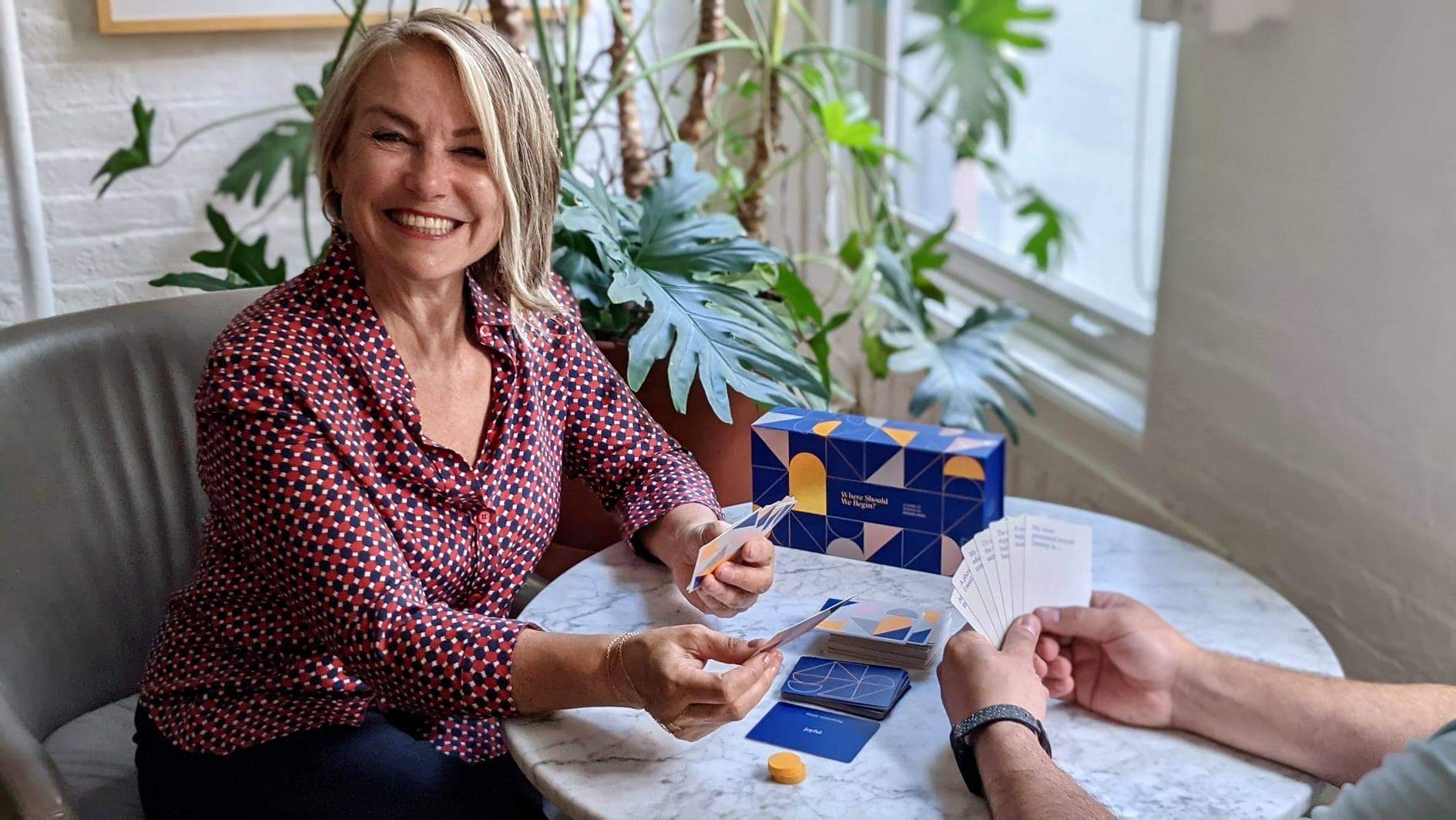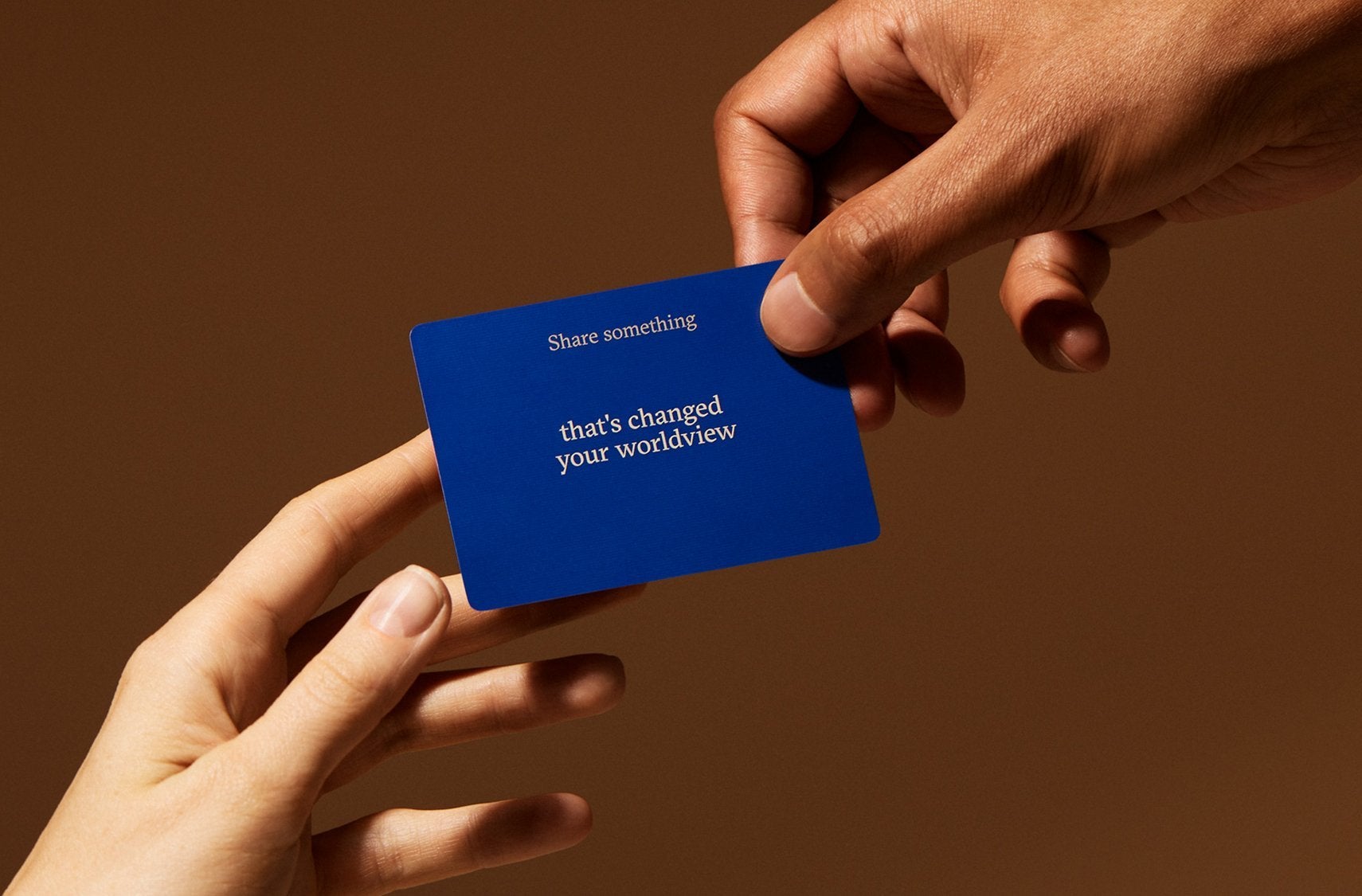Esther Perel’s simple advice for finding meaning at work
“Cut your meetings short and leave time for play.”


“Cut your meetings short and leave time for play.”
This bit of advice comes from Esther Perel, the celebrated psychotherapist and relationship expert who has been untangling the travails of professionals in her podcast How’s Work.
Inserting games into the work agenda, Perel argues, allows interpersonal relationships among colleagues to flourish, which may ultimately lead to a happier and more fulfilled workforce. Her guidance comes during a time when American workers are quitting their jobs at record rates, leaving many companies scrambling to fill positions.
“Attrition, at this particular moment, is really the consequence of the fact that we are living through a global crisis,” Perel observes, citing the Covid-19 pandemic and the climate emergency as major triggers for an existential dilemma on a mass scale. “The period of prolonged uncertainty of a year and a half is going to make people consider their priorities on many, many levels, including the work they do.”
Group activities at work
Beyond bolstering benefit packages or retention bonuses, Perel says group activities that help colleagues get to know one another helps them better appreciate “the diversity and range of experiences in the group” and perhaps convince them to find purpose in their day-to-day jobs.

Fostering a sense of kinship among peers is especially crucial—and doable—for remote teams. A game can take the form of a simple question-and-answer session during a video call, she suggests.
Perel included many work-appropriate prompts in a card game she launched earlier this year called “Where Should We Begin – A Game of Stories.” For example:
When I was young, I’d spend hours daydreaming about…
An important object I lost…
The most unexpected compliment I’ve ever received…
Few people know I could talk for hours about…
I’m particularly stubborn about…
I wish I would have spoken up when…
Lately, I’ve been getting better at…
Questions ought to be selected based on cultural norms and company culture, she says, but overall they serve to chip away at the perceived divide between our professional and personal selves. “These type of questions serves as a bridge between what you do and who you are doing it with,” Perel explains.
Eliminating the stigma of play in the workplace
While some industries have embraced play as part of the innovation process, there’s still a prevailing stigma about unstructured games during office hours. But Perel says investing time and resources in deepening connections among peers always pays off.
“There are all kinds of weird associations to the word ‘play,’ but if you understand that relationships are what’s going to make some people stay and feel that this is an important place for them to be, then you’ll want to bring in tools, practices, and rituals that make those connections,” Perel says.
The advice is not just for remote workers. Building “relational intelligence”—the ability to connect and establish trust with colleagues—is something Perel stressed when she spoke at the SXSW conference in 2019. “No amount of money, or purpose, or even free food can compensate for a poisonous relationship at work,” she said. “Unlike performance, relationships are much harder to measure, harder to sustain, and harder to repair.”
Navigating professional boundaries: Colleagues as friends?
The enterprise of getting to know peers on a personal dimension can be fraught with fears about violating codes of conduct specified by company rule books. Can and should subordinates and bosses be friends? Can and should we approach our boss about our family woes, and not mind if they reciprocate?
Perel observes that the acceptable levels of closeness varies across professions. The entertainment industry, for instance, is more relaxed about muddling the line between family and work lives compared to the corporate world. But making friends at work is inevitable, she says. “Work becomes the place for community, belonging, meaning, purpose and growth—at least in a white-collar framework,” Perel explains. “That means that some of the people you work with will also be your friends.”